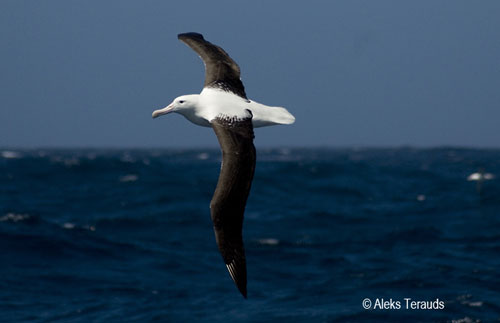Sebastián Jiménez (Recursos Pelágicos, Dirección Nacional de Recursos Acuáticos, Montevideo, Uruguay) and colleagues have written in the Marine Pollution Bulletin on levels of marine debris found in the stomachs of albatrosses. A total of 128 specimens was examined from the south-west Atlantic: 16.4% contained between one and four debris items in their stomachs. Plastic fragments were most common, but some fisheries-related items were recorded. Debris was most frequent in great albatrosses Diomedea spp. and very rare in mollymawks Thalassarche spp.
The paper’s abstract follows:
Plastics and other marine debris affect wildlife through entanglement and by ingestion. We assessed the ingestion of marine debris by seven albatross species in the southwest Atlantic by analyzing stomach contents of birds killed in fisheries. Of the 128 specimens examined, including four Diomedea species (n = 78) and three Thalassarche species (n= 50), 21 (16.4%) contained 1–4 debris items, mainly in the ventriculus. The most common type was plastic fragments. Debris was most frequent (25.6%) and, particularly, Diomedea sanfordi (38.9%) and very rare in Thalassarche species (2.0%), presumably reflecting differences in foraging behavior or distribution. Frequency of occurrence was significantly higher in male than female Diomedea albatrosses (39.3% vs. 18.0%). Although levels of accumulated debris were relatively low overall, and unlikely to result in gut blockage, associated toxins might nevertheless represent a health risk for Diomedea albatrosses, compounding the negative impact of other human activities on these threatened species.”

Northern Royal Albatross at sea, photograph by Aleks Terauds
With thanks to Richard Phillips for information.
Reference:
Jiménez, S., Domingo, A, Brazeiro, A., Defeo, O. & Phillips, R.A. 2015. Marine debris ingestion by albatrosses in the southwest Atlantic Ocean. Marine Pollution Bulletin doi:10.1016/j.marpolbul.2015.05.034.
John Cooper, ACAP Information Officer, 19 May 2015

 English
English  Français
Français  Español
Español